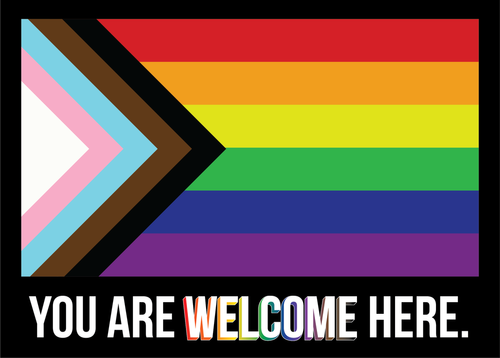
When you hear the word “acceptance”, what comes to mind? Take note of the first impression that hits you as you read that word. Be aware of your conscious or unconscious perspectives as we open up this topic and I’ll encourage you to take what I say lightly and pay more attention to your direct experience.
Acceptance is used in many contexts in our language. We accept gifts, apologies, bad weather, the mail, invitations, a hug, and each of these implies a different set of actions and attitudes we may have while we’re doing the accepting. When it comes to the idea of acceptance in a psychological sense, we’re often asked to accept our feelings, or our past, or even the way things are now. After a breakup, we just have to “accept” the ending of the relationship and move on. When we’re feeling anxious, we just have to “accept” that our skin is crawling and our heart is pounding like a drum. When we’re talking about past traumas or disappointments, we just have to “accept” that bad things happened to us. If you’re feeling any sense of resistance to these ideas or have balked at these suggestions from others in the past, I don’t blame you! At face value, each of these ideas contain the Three Myths of Acceptance:
- Acceptance= Giving up
- Acceptance= Laziness
- Acceptance= Agreement
Taken this way, no one would ever sign up for acceptance if it meant they gave up, were just lazy, or condoned whatever bad situation occurred. Using the word acceptance certainly can mean these things; but the kind of acceptance advocated by spiritual teachers for millenia, and by therapists for decades means something far more specific, valuable, and practical.
Acceptance= Giving up
One of the strongest values we have in America and throughout many other first world countries is perseverance. Qualities like Resilience and Grit are even promoted in the world of psychology as hallmarks of mental well-being. The message is clear, you have to fight and struggle with your problems or else you’re not doing it right. The feeling is “if I’m not doing something about it, nothing’s going to change”. Thinking about just accepting a difficulty can trigger our societal influences and make us feel shame.
Some things in life work well when we fight and struggle! Deciding to hand in your test incomplete because it’s just too hard, quitting halfway through a race after you committed to the whole thing are both examples of where struggle would have helped you accomplish your goal. You can increase your chances of success through pushing past your difficulties. But when it comes to difficulties that exist inside the skin, such as anxieties we can’t control, grief over a loss, painful childhood memories, the struggle strategy often doesn’t work, especially in the long term.
Acceptance is not the experience of doing nothing about our problems. Acceptance is the recognition of the unworkability of the way we’ve always tried to do things in the past, and the willingness to go in a different direction! If you’re trying to wiggle a cork out of a wine bottle and you’ve only been pushing it in one direction to no avail, accepting that this one direction won’t work isn’t giving up, it’s a necessary prerequisite to know you need to try pushing the other way. Acceptance is what allows us to do something different in our lives, to recognize the patterns that keep us stuck and to explore other options.
Acceptance= Laziness
If you Google image search “acceptance” you’ll see people sitting cross legged with their eyes closed, lying in corpse pose, staring off into the sunset. Passivity and stillness, rather than the vitality and engagement we often want to have in our lives. A common worry I hear goes something like: “if I accept my depression, I’ll just lie in bed all day and not move.” The idea being, that if they were to accept their situation, then they would stop trying, there would be no effort, and they would succumb to a kind of psychological paralysis. Again, no wonder the idea of acceptance is difficult if that’s all we would have to look forward to.
Real, lived acceptance is a very engaging process. It consists of things you’re actively doing in relation to your struggles, as opposed to just being pushed around by them. In fact, the less accepting we are of our psychological struggles, the more control they have of us, the less choices we are authentically making because we are constantly trying to fight and get rid of our struggle. If you’re living your life to avoid, fix, or solve your anxiety, anger, depression, whose life are you really living? Yours or your struggles?
Acceptance is an action, it’s turning toward your pain, rather than ignoring it or running from it. It’s moving in the direction of the things you want in life, rather than just away from the things you don’t want. Acceptance looks like acknowledging the anxiety you feel when you’re invited to a party, and choosing to go anyway, taking your anxiety with you rather than trying to leave it at home, numb it with alcohol, or avoiding your friends altogether. Acceptance is throwing open the blinds in your heart and letting the sunlight in, holding your pain tenderly like you would a baby bird, looking at yourself kindly like you would a friend who is struggling. These are all actions, activities, behaviors that model what acceptance truly is in relation to your difficulties.
Acceptance= Agreement
There’s a notion that if you accept something, you’re a co-conspirator. It’s the reverse of the movie phrase “if you’re not with us, you’re against us”. If you’re not against your memories of abuse, you’re with them. “I can’t accept what they did to me, it was wrong and shouldn’t have happened”. In order to cope with overwhelming experiences, we can develop a strong anger or fear, emotions that serve to keep us away from situations like that happening again. This often leads things like to trying not to think about the difficulty (ignoring it), avoiding any external reminders or situations that might trigger it, or distracting with overworking or substance use. These all can work just fine in the short term, and in fact can be positive and helpful ways of dealing in the immediate aftermath.
However, these strategies can be harmful, especially in the long run. Imagine you’re late for work and on your way out the door you stub your toe. It hurts a heck of a lot, but you don’t want to be late, so you grin and bear it and make it to work on time. As the day goes on you start to notice the pain doesn’t go away, your toe swells up, but you still tell yourself “I’ve stubbed my toe a million times, it’ll be fine”. You get home later that night and see that it is turning purple. Would you still try and talk yourself out of it or ignore the pain? The previously helpful strategies that enabled you to make it to work and get through the day may be the very things preventing you from going and seeking the help you need. Accepting you may have broken your toe as just the way things are in your life right now allows you to see things clearly and open up to the support you need.
Acceptance involves being willing to look at our inner wounds and take care of them. They may come along with shame, fear, and anger, but those are the very feelings that need attention and love. We can take the stance that says, “I don’t agree with or condone what happened to me, but I will accept that it’s a part of the experiences I’ve had so I can finally treat this wound.”
Acceptance is a gift you give yourself and the myths around acceptance prevent us from using it wholly and fully. It’s not giving up, rather it creates openings to new ways of being, it is not lazy, rather it’s filled with action and vitality, and it’s not agreement, it honors our experiences as they are so we can do something about them.
If you’d like to learn more about the psychological processes of acceptance and how to apply them in your life, send me an email or reach out and schedule a 15 minute consultation, I’d be happy to talk more about your experience.


